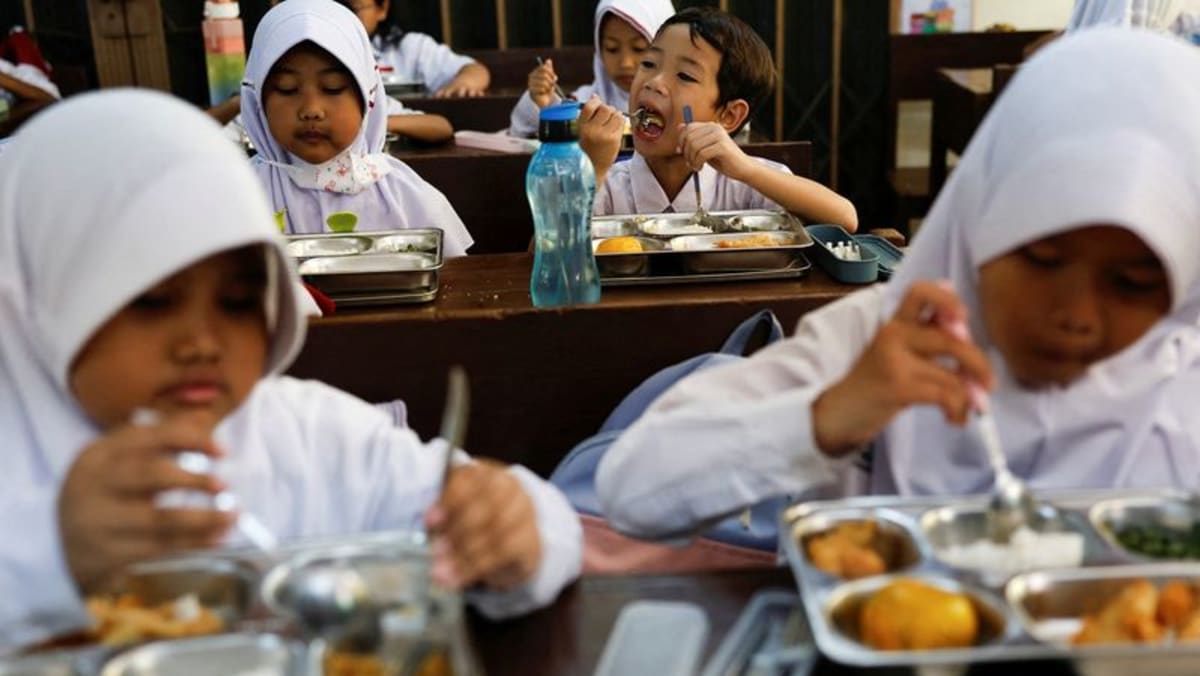NOT A PANACEA
Ensuring good governance (especially food safety) would be essential to preventing the programme from being the “pebble in the shoe” as it involves thousands of caterers and other service providers in transportation and logistics.
It is also important to clarify the roles of a plethora of government agencies involved including the National Nutrition Agency, the Coordinating Ministry of Food Affairs, the Ministry of Health, as well as the local governments. The prominent use of the military and the centralised kitchen system may also crowd out local micro and small enterprises, which the government had intended to support.
The government’s free school meal programme is not a panacea for addressing the triple burden of nutritional issues among Indonesian children.
It is also not the only programme that could help address the issue. For example, stunting, which is already being addressed under the National Strategy to Accelerate Stunting Prevention (Stranas), is an irreversible malnutrition problem after the age of two years old. It is caused by factors beyond food availability. Free school meal programmes can help reduce the long-term effects of stunting, but it is not a programme to reduce stunting.
Indonesia’s free school lunch programme would be more effective if it is done in coordination with other complementary programmes. These include behavioural change and communication to improve dietary practices and measuring children’s nutritional status at school at both the baseline and throughout the programme.
Other needed complementary programmes include physical activities, deworming programmes and food fortification.
Besides more targeted interventions, there are alternative programmes to address Indonesian children’s nutritional status that might be easier to implement and more cost-efficient. This includes targeted subsidies to full-day preschool, which has been proven to positively affect children’s development including anthropometric status.
In short, there is no such thing as a free lunch. The government should be mindful of the potential consequences and policy gaps.
Maria Monica Wihardja is a visiting fellow and co-coordinator of the Media, Technology and Society Programme at ISEAS – Yusof Ishak Institute, and also adjunct assistant professor at the National University of Singapore. In 2017, she worked at the Executive Office of the President of the Republic of Indonesia as a senior advisor to the Deputy Chief Staff in charge of strategic economic issues, where she oversaw the food policy reforms and stunting prevention agenda. Arianto Patunru is a fellow of ANU Indonesia Project, Arndt-Corden Department of Economics, Australian National University and the chairman of Center of Indonesian Policy Studies. This commentary first appeared on the ISEAS-Yusof Ishak Institute’s blog, Fulcrum.
